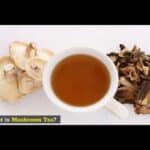Echinacea tea is a member of the daisy family with a sweet…
…and strong floral taste. This herbal tea may aid in immunological health and the prevention of the common cold. Echinacea tea has long been utilized as a natural medicine by North American tribes and indigenous people. According to current studies, echinacea tea is as healthful as it is tasty. Dive into a flowery realm and see what echinacea tea has to offer. Continue reading to learn more about its possible health advantages and how to make it at home.
What Is Echinacea Tea?
Echinacea is a plant that is frequently used in the production of herbal supplements, essential oils, tea, and herbal treatments. The tea is produced by steeping the echinacea plant’s blossoms and leaves in hot water. The plant echinacea is also known as the American coneflower or the pale purple coneflower. Echinacea is a member of the Asteraceae family, which also contains daisies. The plant echinacea is indigenous to North America, including the United States. For hundreds of years, Native American tribes and Great Plains Indians utilized echinacea tea as a natural treatment for ear infections and discomfort.
Echinacea purpurea, Echinacea pallida, and Echinacea angustifolia are the three major kinds of echinacea plants used to create tea. Echinacea angustifolia has big leaves and violet-colored blooms, whilst Echinacea pallida has light rose-colored flowers. The purpurea cultivar features reddish purple blooms and is regarded as an immune system enhancer in Europe. Echinacea contains polysaccharides and vitamin C, both of which improve overall health and well-being. Echinacea tea is a caffeine-free herbal tea that may be consumed throughout the day.
Flavor Profile
Echinacea tea has a tingling sensation that is both refreshing and energizing. Echinacea has a distinct taste that is flowery in nature. It tastes like pine needles with a delicate, round flavor of meadowsweet. To provide a smoother flavor, this tea is frequently mixed with lemongrass and mint.
Health Benefits of Echinacea Tea
Boosts Immunity
This tea beverages has long been used to boost the immune system and prevent illnesses. Echinacea has antimicrobial qualities that help keep infections at bay. Echinacea tea can also help to relieve sore throats and the aches and pains associated with the common cold and flu.
The impact of echinacea on the immune system was studied in a meta-analysis published in The Lancet Infectious Diseases Journal. Researchers examined 14 trials and discovered that echinacea reduced the incidence of the common cold by 58%. Consumption of echinacea also reduced healing time by one and a half days. Even if you do acquire a cold, drinking echinacea tea will help avoid sickness and get you back on your feet quickly.
Echinacea tea also aids in the removal of free radicals, which cause oxidative stress and cell damage. This improves general health by delaying the start of aging and neurological deterioration.
Prevents Infection
Echinacea has antibacterial properties that help it treat yeast infections and urinary tract infections. The majority of studies indicates that the chemicals contained in echinacea leaves are responsible for these health advantages. Caffeic acid and other tea polyphenols, in particular, have antiviral properties that help to prevent illness. Although research is ongoing, some evidence suggests that echinacea may increase white blood cell numbers.
Other research, including one published in the American Journal of Clinical Nutrition, suggests that polysaccharides found in echinacea tea may be useful in the treatment of diseases such as HIV. These chemical compounds operate by inhibiting the reproduction of damaged cells, therefore reducing the spread of infections.
Relieves Pain
Echinacea was initially used to alleviate pain by Native Americans. Today, the plant is utilized to cure a variety of pains ranging from toothaches to rheumatoid arthritis. Echinacea tea can be used to treat digestive problems such as cramps and IBS. A randomized, double-blind research published in Evidence-Based Complementary and Alternative Medicine investigated the pain-relieving effects of echinacea. Researchers discovered that patients who took echinacea needed less pain relievers to alleviate cold symptoms.
Improves Mood
Echinacea’s fragrant scent can aid to alleviate emotions of melancholy and tension. The fragrance of echinacea causes the release of dopamine, a hormone that regulates happiness. Echinacea may help reduce cortisol levels, popularly known as the stress hormone.
The benefits of echinacea on anxiety were examined in a research published in Phytotherapy Research. The excitatory synapses were considerably reduced by echinacea, according to the researchers. This indicates that when people took echinacea extract, they felt less dread and anxiety. While echinacea was found to modulate synapses, it did not completely block transmissions.
Soothes Respiratory Ailments
Echinacea tea may aid in the treatment of asthma symptoms as well as upper respiratory tract infections. These illnesses are frequently triggered by allergies or the common cold. By calming irritated muscles, Echinacea tea promotes air flow in the throat and lungs. Echinacea also reduces histamine, which is the body’s hypersensitivity to natural stimuli that causes allergic reactions. According to a 2015 study, echinacea possesses bronchodilatory and anti-inflammatory properties. These characteristics are comparable to those seen in synthetic medicines used to treat asthma.
Was this helpful?
Hi there! I’m a food enthusiast and journalist, and I have a real passion for food that goes beyond the kitchen. I love my dream job and I’m lucky enough to be able to share my knowledge with readers of several large media outlets. My specialty is writing engaging food-related content, and I take pride in being able to connect with my audience. I’m known for my creativity in the kitchen, and I’m confident that I can be the perfect guide for anyone looking to take their culinary journey to the next level.









